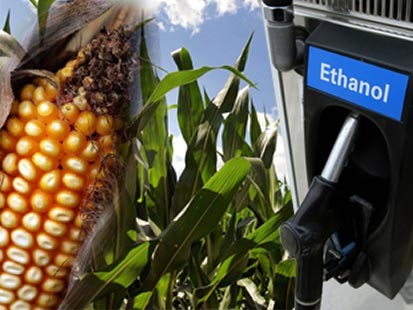
Conference Board study backs ethanol
November 20, 2011
By
Scott Jamieson
 Nov 20, 2011, Ottawa - The Conference Board of Canada released a study
late last week debunking several myths about the making and use of
ethanol in Canada.
Nov 20, 2011, Ottawa - The Conference Board of Canada released a study
late last week debunking several myths about the making and use of
ethanol in Canada.
Ethanol's Potential Contribution to Canada's Transportation Sector assesses the economic impact of the ethanol industry in Canada, its
environmental and health effects, and the balance between the energy
required to produce ethanol and the amount of energy generated.
“Good policy is based on accurate information and careful assessment of
the alternatives. The purpose of this report is to assess the evidence
and to contribute to policy discussions around ethanol,” said Len Coad,
Director, Environment, Energy and Transportation. “Our study concludes
that ethanol should be part of Canada’s energy mix. It is a clean
transportation fuel that has a positive energy balance, reduces
greenhouse gas emissions, and contributes to energy self-sufficiency.”
Ethanol production in Canada has reached almost 2 billion litres per
year and will continue to grow because a federal renewable fuel standard
has been implemented and transportation fuel markets continue to
expand.
The report assesses the economic impact of the ethanol industry,
examines the policy objectives that underpin government support of the
ethanol industry, and assesses some of the future opportunities for the
industry.
The study finds that ethanol can contribute to reducing Canada’s
greenhouse gas (GHG) emissions. Life cycle analysis – which considers
the emissions resulting from each step of production and consumption –
indicates that a 10 per cent ethanol blend reduces GHG emissions by four
to six per cent compared to gasoline. If a 100 per cent ethanol blend
were available, GHG emissions would be between 40 and 62 per cent lower than those from gasoline production and use, depending on the production technologies and energy sources used.
The economic impacts of ethanol production and use come from three
primary sources: construction of plants, operation of plants, and
government financial support of the industry, with the industry’s
contribution to the Canadian economy estimated at as much as $1.2
billion annually.
Government support in Canada is estimated to average approximately $260
million annually from 2006 through 2012. An estimated $925 million in
government revenues is generated during the construction phase for
ethanol plants, and annual operations bring another $240 million
(estimated) into government coffers.
The biofuels industry accounts for more than 14,000 person-years of
employment during construction phase and over 1,000 permanent jobs once
plants are in operation.
The study was funded by the Canadian Renewable Fuels Association. The
findings are based on a thorough review of an extensive range of reports
and scientific studies about ethanol technologies, costs, environmental
impacts, infrastructure, and policy support, with a particular focus on
research using peer-reviewed, scientific methods.
The complate report can be found here.
Print this page